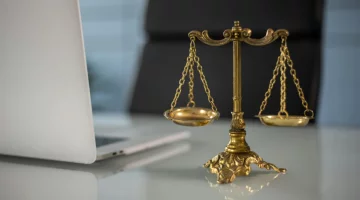Injury Settlements Can Help Victims Cover Medical Bills
“How much will it cost me to treat my injuries and damages?” is a question that weighs heavily on the minds of car accident victims. The medical bills that follow such a catastrophic event go up to tens of thousands of dollars, especially when you consider a treatment like physiotherapy. To get the right amount in settlement, you need the help of an experienced personal injury lawyer because the insurance company alone wouldn’t be good enough.
Car accident settlement cases are complex, and in the wake of such a tragic event, it becomes incredibly complicated for the victim’s family to look after it themselves. While insurance may cover a portion of the expenses, you won’t know what your injuries are truly worth unless they’re assessed by a medical professional who’s experienced in treating car accident injury victims.
Establishing medical expenses
With a lawyer by your side, you might not need to pay all your medical bills right away. Personal injury lawyers have good connections with doctors who specialize in treating such victims and have no problem being reimbursed later. When it comes to establishing damages, medical bills contain the most valuable information regarding the extent of injuries and pain the victim suffered.
However, to present these bills in court as proof, there are a few things every experienced attorney should consider.
- Over-relying on bills is not always a good idea if they do not have treatment notes that help establish pain levels or other intangible issues
- Medical bills are not always accurate when it comes to diagnosis issues.
- Witnesses of the incident can not only testify about the accident but also how it affected the injured party
- Medical bills only qualify to be admissible in court if the attorney has taken steps to lay the case foundation properly
How car crash settlement claims are divided
Auto accident settlements are divided between parties that provided financial aid during the case. For example, if the health insurance provider paid for the injury treatment before the case was settled, they are owed the amount after the settlement. Settlements are usually divided between insurance companies, medical providers, and personal injury lawyers before the victim receives their full and final portion. Let’s discuss these in more detail.
- Victim reimbursement
Auto accident victims are often eligible for various types of compensation, known as ‘accident damages.’ This can be further classified into two categories: Economic or special damages and Non-economic or general damages. Economic damages are expenses directly related to the loss of a specific dollar value, such as lost wages. Accident victims can seek reimbursement for all types of economic damages, including vehicle repair costs which should be borne by auto insurance coverage.
Non-economic damages are expenses not directly related to any monetary amount; examples are pain and suffering. Since these types of damages are intangible, the compensation is handed out to make the victim feel whole again.
- Legal costs and attorney fees
Since car accident attorneys work on a contingency basis, you’ll have to pay their fees after they successfully get you a settlement. The usual charge is between 30-40% of the settlement amount. The costs associated with making progress with the case, such as the cost of filing to initiate a lawsuit and other expenses, are tracked throughout and settled against your compensation amount.
Even though 30-40% of the settlement value may feel like a significant amount, you’re essentially putting yourself under no risk by agreeing to a contingency-based contract. And the amount leftover in such a case will be far more than what you’ll likely get from the insurance company.
- Auto insurance reimbursement
Whether you live in an “at-fault” or a “no-fault” state, the amount you receive in reimbursement or whether you’ll receive anything at all will depend. In a no-fault state, your Personal Injury Protection or PIP insurance would cover your medical expenses. In contrast, in an at-fault state, the at-fault driver’s insurance company will step in. In the latter case, the amount you can recover would depend on the driver’s injury liability coverage.
Remember that in case of car accidents, it’s not always possible to determine which driver was responsible. In complicated cases where the fault is not apparent, both parties will be held partially at-fault, and the insurance companies will investigate the extent of negligence of each driver. The definition of ‘negligence’ is defined by every state and is distinct, so depending on where you live and the extent of your fault, the way how your claim is handled will depend.
- Health insurance
Health insurance is not the first to cover your medical bills, as health coverage only kicks in once the other policies, such as PIP coverage, have been exhausted. If you use your personal health policy to treat injuries caused by an at-fault party, the insurance company will expect to get paid back once you receive a settlement.
Both private and government-based providers like Medicare and Medicaid will expect reimbursement after the settlement. However, if you don’t have insurance and a health insurance company doesn’t pay for any treatment before the settlement is made, the reimbursement amount will go directly to the medical provider that started the treatment.
Negotiating cost of medical bills
Every accident victim has the legal right to negotiate medical bill costs without impacting the way how the total settlement amount is calculated. In most personal injury lawsuits, the negotiations on medical expenditures are done after the settlement has been decided to make sure the victim has enough to reimburse the owed parties.
A personal injury lawyer also has the right to review items mentioned in the bill for evidence of overcharging or balance billing, if any. They can also go over their client’s insurance coverage and terms of the contract with the medical provider to make sure all listed costs are accurate.
If you’re awarded a settlement, legal costs, medical expenses, and other related fees will be deducted from the total amount. You’ll be entitled to keep the rest of the compensation for treating damages like pain, suffering, and lost wages. A car crash lawyer can help retain your portion of the settlement so you’re back on your feet again.
More to Read:
Previous Posts:



